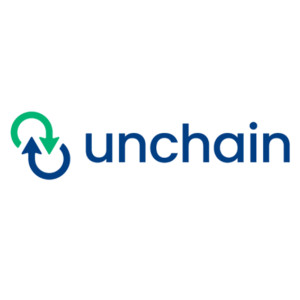 \
&
Contact us
\
&
Contact us
 \
&
Contact us
\
&
Contact us
Published on | 3 years ago
Last updated on | 1 month ago

manhei.to@fwo.be
In order to stimulate the participation of widening countries in Horizon Europe in particular in the Pillar 2 Actions, the European Commission has created the Hop On Facility call (HORIZON-WIDERA-2023-ACCESS-06-01). This call will be funded through the Work Programme Widening participation and strengthening the European Research Area and contributes to the inclusiveness ambition of the future European Research Area. This call will provide the possibility for legal entities from low R&I performing countries (=widening countries) to join already selected collaborative projects, subject to the agreement of the respective consortium and provided that legal entities from such countries are not participating in it yet.
As defined in the Horizon Europe regulation the low performing R&I countries or the so called widening countries are Bulgaria, Croatia, Cyprus, Czechia, Estonia, Greece, Hungary, Latvia, Lithuania, Malta, Poland, Portugal, Romania, Slovakia, Slovenia and all Associated Countries with equivalent characteristics in terms of R&I performance and the Outermost Regions (defined in Art. 349 TFEU).
The Horizon Europe Associated Countries that are considered as widening countries are : Albania, Armenia, Bosnia and Herzegovina, Faroe Islands, Georgia, Iceland, Kosovo, Moldova, Montenegro, Morocco, North Macedonia, Serbia, Tunisia, Turkey and Ukraine.
The widening Outermost Regions are: Guadeloupe, French Guiana, Martinique, Réunion, Mayotte Saint-Martin, The Azores, Madeira, Canary Islands.
A consortium under Pillar 2 Actions and the EIC Pathfinder of Horizon Europe with a valid grant agreement but without a partner from a widening country in the consortium yet can apply to include a legal entity from a widening country in their consortium. The application to include a partner from a widening country needs to be submitted by the coordinator of the consortium. All consortium partners need to agree with the inclusion of this new partner from a widening country. The application needs to describe in detail the profile of the new partner and the role of this partner in the project and the R&I relevance and complementarity of this new partner also needs to be demonstrated in the application. All the information will have to be added in a track changes document based on the Description of the Action (DOA). The selected applications will be invited to submit an amendment for accession of the new partner, the modification of the description of the action and upgrade of the budget.
On the Funding and Tenders Portal you will find a list of the funded projects in Pillar 2 and the EIC Pathfinder that are eligible for the Hop On Call. Flemish coordinators that need help with finding suitable partners from widening countries dont't hesistate to contact your NCP Widening, Man Hei To (manhei.to@fwo.be).
The European Commission foresees a budget between 200K EUR and 500K EUR per project. This additional top-up will be added to the initial budget of the existing consortium. However this budget increase should be exclusively spent at the benefit of the new partner with the exception of a coordination fee of up to 10% of the increased budget to be allocated to the coordinator of the consortium.
The proposals for this additional top-up will need to contribute to the following expected impacts:
This call is open from 10 January 2023 and will have two closing dates: on 28 September 2023 and 26 September 2024.
We offer news and event updates, covering all domains and topics of Horizon Europe, Digital Europe & EDF (and occasionally, for ongoing projects, Horizon 2020).
Stay informed about what matters to you.
By signing up, you can opt in for e-mail notifications and get access to
a personalised dashboard that groups all news updates and event announcements in your domain(s).
Only for stakeholders located in Flanders

The UNCHAIN project, ‘urban logistics and planning: anticipating urban freight generation and demand including digitalisation of urban freight’ obtained funding from the Horizon Europe’s Mobility Cluster. The project focuses on breaking down data silos and promoting public-private data exchange across a unified European mobility data space, enabling more informed decisions and greater efficiency. The City of Mechelen is a partner in the project and takes on the role of ‘follower city’: it will work alongside the primary demonstration sites (in Madrid, Berlin and Florence) to maximize the geographical coverage and replicability of solutions across Europe. Mechelen aims to test 2 concrete solutions in the UNCHAIN project, with the aim to help addressing its current and future challenges in urban freight distribution.